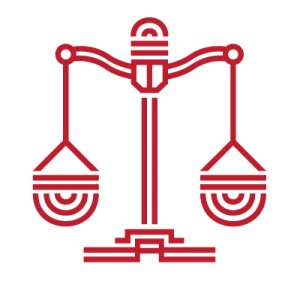Best Employment Rights Lawyers in Midrand
Share your needs with us, get contacted by law firms.
Free. Takes 2 min.
List of the best lawyers in Midrand, South Africa
About Employment Rights Law in Midrand, South Africa
Employment rights law in Midrand, South Africa, is a legal framework designed to protect both employees and employers in the workplace. Midrand, as a rapidly growing commercial hub in the Gauteng province, falls under the jurisdiction of South African national labor laws as well as Gauteng's regional interpretations and practices. The principle aim is to ensure fair treatment, equal opportunity, safe working conditions, and mechanisms for resolving disputes between employers and employees. Legislation such as the Basic Conditions of Employment Act and the Labour Relations Act provide the foundation for these rights, setting standards for contracts, wages, working hours, benefits, and protection against unfair dismissal or discrimination.
Why You May Need a Lawyer
There are several situations in which you might require legal help when it comes to employment rights in Midrand, South Africa. Common scenarios include unfair dismissal, workplace discrimination, disputes over pay or benefits, sexual harassment, changes in employment contracts, retrenchments, and disciplinary actions. If you feel your rights as an employee have been breached or you are unsure of your obligations as an employer, consulting an employment lawyer can help clarify your position and provide guidance on the correct procedures to follow. A lawyer can represent you in negotiations, mediations, and at the Commission for Conciliation, Mediation and Arbitration (CCMA) or Labour Court if disputes escalate.
Local Laws Overview
Employment rights in Midrand are governed primarily by national South African employment laws. Key pieces of legislation include:
- Basic Conditions of Employment Act (BCEA): Establishes minimum rights regarding working hours, leave entitlements, termination notice periods, and remuneration. - Labour Relations Act (LRA): Details rights concerning union membership, collective bargaining, unfair dismissals, and dispute resolution. - Employment Equity Act (EEA): Prohibits unfair discrimination and promotes workplace equality. - Occupational Health and Safety Act (OHSA): Requires employers to provide safe working environments. - Unemployment Insurance Act (UIA): Provides unemployment, illness, or maternity benefits to qualifying workers.
In addition to these acts, local municipal bylaws and certain industry-specific agreements negotiated by bargaining councils may apply within Midrand. Most employment relationships must be governed by a written contract clarifying the terms and conditions of employment.
Frequently Asked Questions
What are my basic rights as an employee in Midrand?
You are entitled to a safe workplace, fair wages, paid leave (annual, sick, maternity or family responsibility), reasonable working hours, and protection against unfair dismissal or discrimination.
Does my employer have to give me a written contract?
Yes, under South African law, employers must provide a written agreement outlining the essential terms and conditions of your employment, even if it is a fixed-term, part-time or probationary contract.
What should I do if I am dismissed unfairly?
If you believe your dismissal was unfair, you should first try to resolve the issue internally with your employer. If unresolved, you can refer the dispute to the CCMA within 30 days of dismissal for mediation or arbitration.
Is discrimination at work illegal?
Yes, the Employment Equity Act prohibits unfair discrimination on grounds like race, sex, religion, age, disability or HIV status, among others. You have the right to lodge a complaint and seek remedies.
I am being harassed at work. What are my options?
Workplace harassment is prohibited. Report the matter to your employer or the human resources department as a first step. If not resolved, you can approach the CCMA or Labour Court for assistance.
Can my employer change my working hours or salary without my consent?
No, material changes to your employment terms, such as salary or working hours, must be discussed with you and agreed upon in writing. Unilateral changes can be challenged as a breach of contract.
What leave am I entitled to?
Employees are generally entitled to annual leave (minimum 21 consecutive days), sick leave, maternity leave, and family responsibility leave, depending on length and type of employment.
Do I have rights as a temporary or part-time worker?
Yes, temporary and part-time workers are also protected by employment laws. They must receive fair treatment and pro-rata benefits according to the hours or days they work.
What is the role of trade unions in Midrand?
Trade unions advocate for employees' rights and can represent you in disputes, negotiations, and collective bargaining processes with your employer.
How long do I have to lodge a workplace dispute?
Most disputes, such as unfair dismissal, must be referred to the CCMA within 30 days of the incident. Discrimination claims have up to six months. Act promptly to protect your rights.
Additional Resources
If you need more information about your employment rights, the following organizations and government bodies can assist:
- Commission for Conciliation, Mediation and Arbitration (CCMA) - Department of Employment and Labour - Legal Aid South Africa - South African Human Rights Commission (SAHRC) - Local trade unions and bargaining councils - Community Advice Offices - Labour Court (Johannesburg regional division)
These institutions offer guidance, dispute resolution services, and legal representation, often at no or low cost, to qualifying individuals.
Next Steps
If you believe your employment rights have been violated or need legal advice on workplace matters in Midrand, start by gathering all documents relevant to your employment such as contracts, payslips, and correspondence. Attempt to resolve the matter internally if possible. Should this fail, reach out to the CCMA, a relevant trade union, or one of the governmental bodies listed. If your matter is complex or sensitive, consider consulting an employment law attorney for professional advice and possible representation. Take prompt action, as legal deadlines for employment disputes are typically strict.
Lawzana helps you find the best lawyers and law firms in Midrand through a curated and pre-screened list of qualified legal professionals. Our platform offers rankings and detailed profiles of attorneys and law firms, allowing you to compare based on practice areas, including Employment Rights, experience, and client feedback.
Each profile includes a description of the firm's areas of practice, client reviews, team members and partners, year of establishment, spoken languages, office locations, contact information, social media presence, and any published articles or resources. Most firms on our platform speak English and are experienced in both local and international legal matters.
Get a quote from top-rated law firms in Midrand, South Africa — quickly, securely, and without unnecessary hassle.
Disclaimer:
The information provided on this page is for general informational purposes only and does not constitute legal advice. While we strive to ensure the accuracy and relevance of the content, legal information may change over time, and interpretations of the law can vary. You should always consult with a qualified legal professional for advice specific to your situation.
We disclaim all liability for actions taken or not taken based on the content of this page. If you believe any information is incorrect or outdated, please contact us, and we will review and update it where appropriate.











